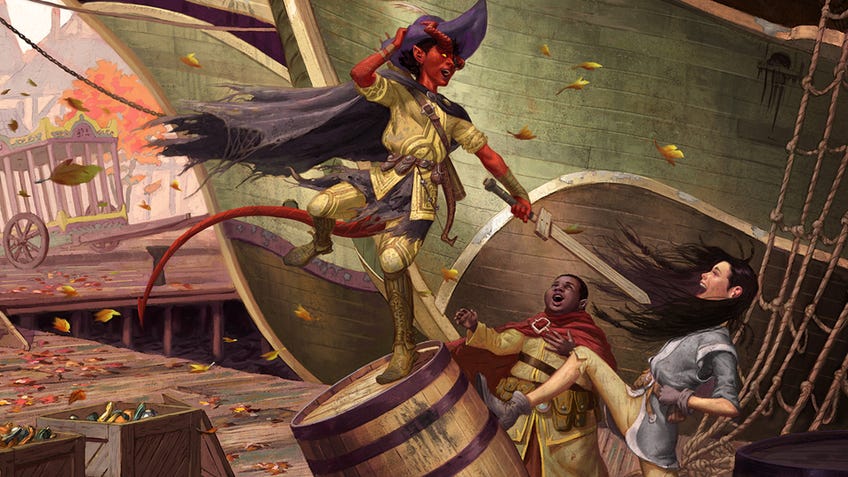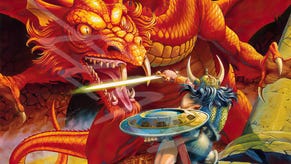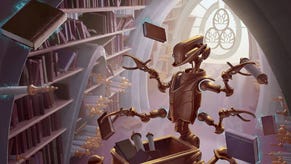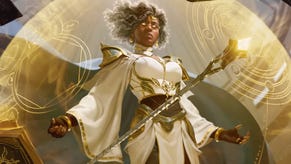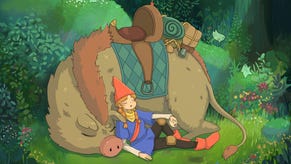Playing Dungeons & Dragons to win is the most boring way to play
Or; why D&D is like chocolate biscuits and pasta sauce.
Some people don’t like Dungeons & Dragons 5E. Some of those people are valid. Others, however, are not. There’s a particular crowd who criticises the all-encompassing, all-consuming tabletop RPG because of the way its character progression system functions.
“After level 10 or so,” these strawmanned individuals will say, “It gets boring. You’re limited in your options. This spell doesn’t do as much damage as that spell, this piece of armour isn’t as tough as that piece of armour, this subclass isn’t as effective as that subclass.”
They say this - the entirely hypothetical D&D critics to whom I’m referring - with such conviction, as if it were some truth rendered in stone by a god. I don’t like this though, and think it’s absolute garbage.
Sure, that spell might not do as much damage as this spell, but this spell is just a beam of light wot hurts a lot and that spell opens up a portal to the void, spilling out bile, slime and whispers, wracking the very psyche of your foes. This piece of armour is just an inch-thick rectangle of steel, but that piece of armour is a tapestry of leaves from an ancient spiritual tree weaved together by a seasoned artificer. This subclass lets you do a big smash and roll all the dice, but that subclass lets you pick the lock on the door at the other end of the room and pluck a spell right out of a wizard’s hands. Doing the thing that’s fun and interesting is equally as important - nay, almost always better than - doing the thing that’s optimal and efficient.
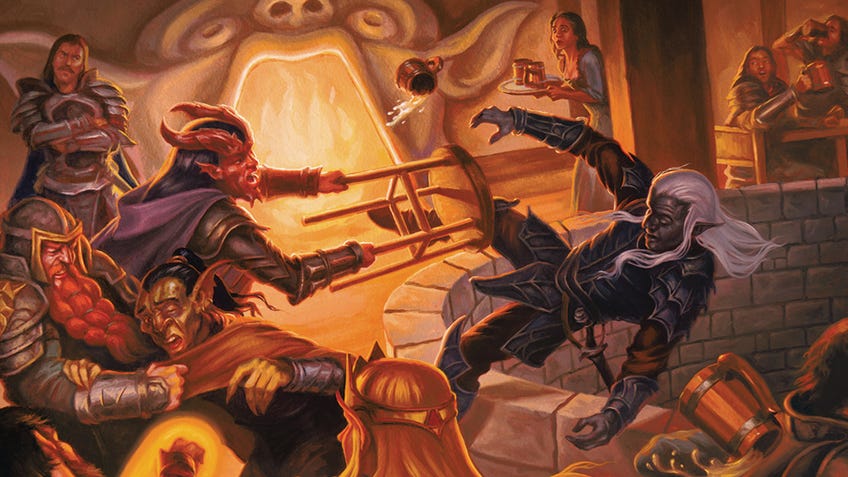
One of my fondest D&D characters is a warlock called Dave. He’s this grotty little hermit who used to live in a cave eating mushrooms all day. In one of his psilocybin-induced visions, he imagined Cthulhu appearing before him and declaring him their prophet - and so, he renamed himself to Dave, Prophet of Cthulhu. He occasionally set out far and wide to spread the influence of the Great Old One, but mostly just sat in his cave, eating mushrooms. This pact with Cthulhu, though, is a contentious choice for some.
“Fiend,” the archetypal forum users declare, “is the superior option. The bonus spells for combat and bonus HP from killing enemies and blah blah blah, you can do more damage.” Now look, yes, fighting and killing are undoubtedly a big part of Dungeons & Dragons. But if this were real life, and I had to choose between doing a certain percent more damage with my attacks, or to have the ability to open up a squelchy portal into the void so that tentacles dripping in slime can ooze out, squeezing and dissolving my foes to death… well, I’m going to go with the existential murder tentrils, because that’s a lot bloody cooler.
You know what? There’s a chance that you, reading this, would prefer to choose the former option. That’s fine! You’re valid. Incorrect, but valid. What isn’t valid is declaring Dungeons & Dragons a "bad game" because the way it’s designed makes playing in that style boring. Nor is chastising another player of the game for not voluntarily backflipping into the maths-based prison mines.
What isn’t valid is declaring Dungeons & Dragons a "bad game" because the way it’s designed makes playing in that style boring.
It’s like if you went to the shops to buy some biscuits. There are lots of different options - bourbons, cookies, custard creams, ginger snaps, jaffa cakes (contentious, I know) - and you’re free to pick whatever biscuit suits you best, based on your preference of flavour, texture and cost.
Now, imagine if someone snatched the pack of Tesco own-brand dark chocolate digestives out of your hands and insisted that your choice was wrong and that the McVitie's brand offered a more robust flavour profile. Or, perhaps, that the biscuit you’ve chosen doesn’t possess an optimal biscuit-to-money ratio, and that you’d be better off getting the buy-one-get-one-free Maryland double chocolate chip cookies, even though you’re not really up for a crumbly biscuit at the moment. You’d think they were a massive arsehole because you didn’t want the cookies, you wanted the digestives.
It’s the same story in Dungeons & Dragons, as well as many other tabletop RPGs. There’s a reason why all of these other spells, abilities and pieces of equipment that aren’t as good exist; it’s not just so they can serve as intermissionary items on the way to the “best” bits of gear, it’s because they add flavour for the players who want it.
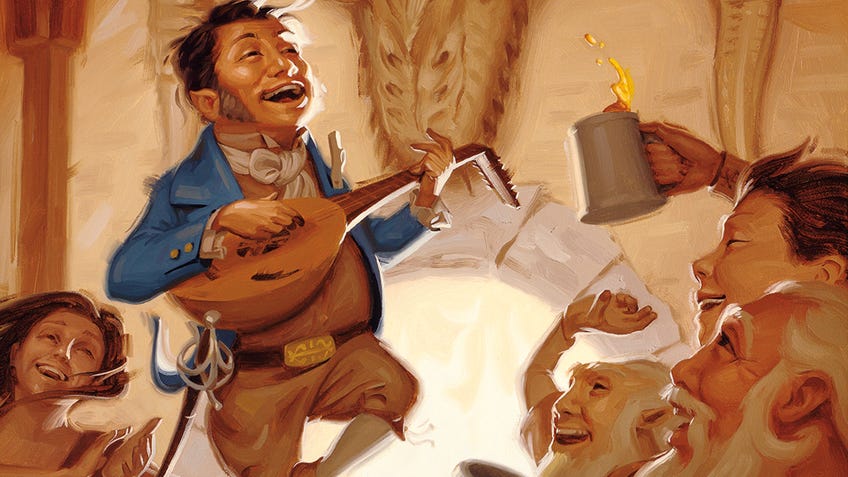
It’s why the Cloak of Displacement exists - a garment that, when worn, makes you appear to be somewhere a foot or two away from where you actually are - when the Cloak of Arachnida also exists, and lets you climb walls, resist poison and squirt spiderweb all over the place. If you’re playing a wizard with a fascination for experimenting with spacetime, the Cloak of Displacement is going to feel more fitting for the character than one that functionally turns you into a daddy long legs.
In the 1980s, US pasta sauce brand Prego hired psychophysicist and market research specialist Howard Moskowitz to analyse the opinions of Americans on whether their pasta sauce should be chunky or smooth to make it the perfect pasta sauce. His paraphrased conclusion, which revolutionised the food industry, was: “There is no such thing as one perfect pasta sauce; only multiple perfect pasta sauces.”
The D&D of today isn’t a game where you’re meant to crunch numbers and optimise - it’s a game where you’re meant to tell a story.
The Cloak of Displacement, as well as all of the other items and options in Dungeons & Dragons that are interesting but not necessarily the "best", are like perfect pasta sauces in an ocean of perfect pasta sauce. Because while Dungeons & Dragons has its origins in straight-cut and efficient dungeon-crawling, the D&D of today isn’t a game where you’re meant to crunch numbers and optimise - it’s a game where you’re meant to tell a story.
Some tabletop roleplaying games are boring if you powergame, while others are designed with powergaming at the forefront. This isn't the deciding factor in how good or bad it is. Sometimes, the point isn’t to game a game’s system; it’s to have an immersive, creative and authentic experience. Put down the calculator, stop being scared and do some roleplay.
